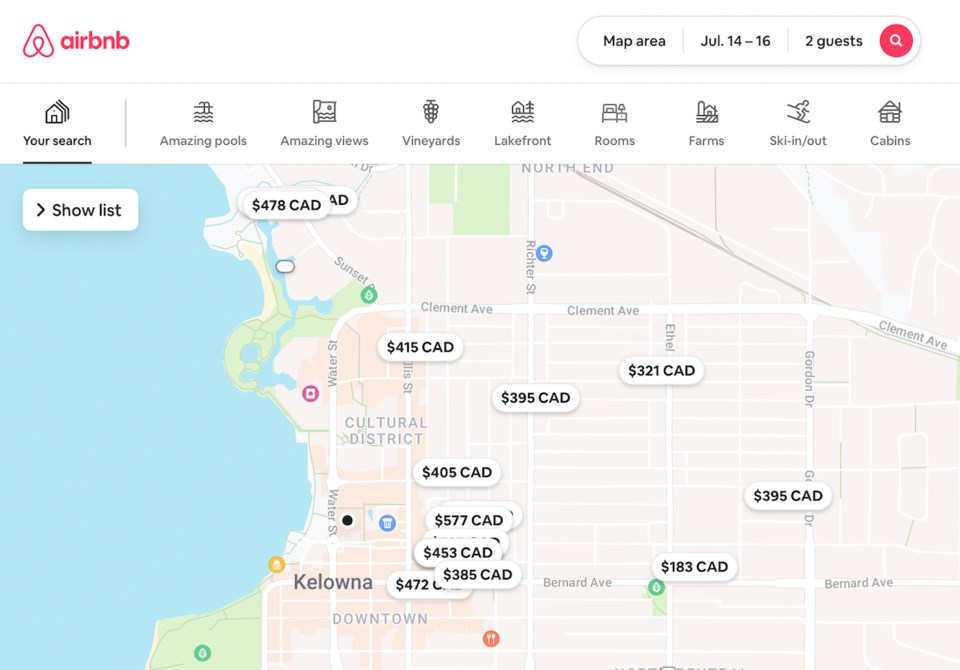The number of vacation-rental homes in Kelowna being used contrary to city bylaws is growing, even as the number of legal short-term rentals within the City of Kelowna has nearly doubled since the city .
Upon adopting its short-term rental bylaws on April 8, 2019, Kelowna council agreed to review its progress after two years. The initial review was postponed due to the pandemic, meaning the bylaws' impact was just reviewed this year.
According to figures released in the review, as total of 1,139 short-term rental licenses have been approved across the city as of June of this year. That's nearly double the 630 approved in 2020.
The report further states 796 of those were identified through a software tool used by the city's licensing team as operating without a license before being brought into compliance, including 70 this year.
The city says about 200 other properties across the city continue to operate short-term rentals illegally. Several other properties have been flagged for further identification and investigation.
The most common reasons for non-compliance include operating without a licence or contrary to conditions of the business licence; the operator not meeting principal residence requirements; and operating a short-term rental within a secondary suite.
When adopting the short-term rental regulations in 2019, council expressed concerns over the impact the growing short-term rental market would have on the city's long-term rental stock at a time when the rental vacancy rate sat at less than one per cent.
Vacancies in private rental units in Kelowna averaged 2.3 per cent in October 2019 and currently sit at 0.8 per cent, according to Canada Mortgage and Housing Corp. data.
In bringing forward the review, city staff hope to facilitate a discussion with council to review potential options for regulatory amendments.
Staff have proposed three potential amendments, the most severe of which would be the elimination altogether of short-term rentals as a permitted use across the city.
Minor amendments to prohibit short-term rentals from operating on properties within a rental-only subzone and clarifying language around residency requirements and principal and secondary use were also suggested, as were major amendments to also ban short-term rentals from townhouses and apartments.
"This (major amendment) option would further regulate short-term rentals by limiting permitted uses in townhouses and apartment land use categories," the staff report stated.
"A key problem identified in the CHMC (2020) report was that the majority of short-term rentals are owned by large-scale commercial operators and not private individuals. It is estimated that a number of current townhouses and apartment housing units are being utilized as investment properties, in contradiction to current short-term rental principal residency and secondary use requirements."
Data from the 2021 census indicate that approximately 7.7 per cent of the housing stock was not occupied by its usual residents on census day, suggesting a high proportion of unoccupied housing or short-term occupants.
Council is expected to review options and give staff direction on potential changes to the zoning bylaw regulating short-term rentals.
Specific changes are expected to come back to council in the coming weeks.



